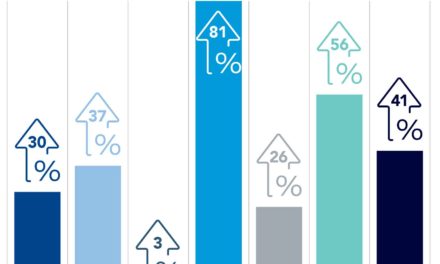Better Business Podcast EPISODE 6
When Social Activists
Target Organizations
Guest: Forrest Briscoe, professor of management and the Frank and Mary Jean Smeal Research Fellow
Can — and should — social activism change an organization?
Activism was on the rise before the killing of George Floyd prompted protests around the world. But, today, many point to that period as the moment when everything changed. In the weeks and months that followed, businesses of all shapes and sizes issued statements rebuking racism and promising meaningful steps to reverse its pervasiveness. Ever since, business leaders have appeared to be much more responsive to the various concerns of activists.
“I think because ESG — the environmental, social, and governance issues — have become more mainstream within business, there’s a lot of support and interest and statements of commitment from business leaders,” says Forrest Briscoe, professor of management and the Frank and Mary Jean Smeal Research Fellow at Penn State Smeal. “Social activists are looking at a lot of these companies and saying, ‘Hey, we’d like you to be doing more. You said you’re committed.’”
But does this new dynamic benefit either party?
“We’ve done a lot of research trying to understand that interaction,” Briscoe says. “[T]here seems to be a decent body of research that [indicates] activists are kind of rational. So, in some ways, they’re looking for places where there’s already some agreement, already some movement toward their goals.”
For example, a company that’s already committed to reducing its carbon footprint could be motivated, either by activists or its own employees, to pursue that goal more ambitiously. But Briscoe says companies are rarely persuaded to adopt new stances, especially ones in opposition to their interests.
Increasingly, brands — and sometimes the leaders of brands themselves — are called out for their inconsistencies on social media. In certain situations, a grassroots campaign can gain such momentum that a company is forced to publicly commit to changing the practice in question. However, Briscoe says that no one tactic has clearly proven more effective than another for activists.
In an apparent attempt to keep conflict outside of their walls, companies like Meta have issued blanket policies discouraging employees from discussing potentially volatile issues at work.
“It’s almost wishful thinking in this digital era, when employees can communicate on internal social platforms,” Briscoe says. “Regardless, there’s always external social media. And employees are increasingly not shy about connecting their work affiliation to these issues and asking the CEO, ‘What are you doing about this?’”
We’re working at a moment in time when the prevailing perception is that the employee holds more power than the employer, and it’s emboldening employees, Briscoe says. But that could quickly change if, say, we entered a recession and the unemployment rate rose sharply.
For now, though, social media has granted us unprecedented access to how companies are responding to both internal and external turmoil in real time.
“Everybody is tweeting a revolution from within,” Briscoe says. “And as a researcher, that’s all data that we can use.”
– Scott Edwards

Forrest Briscoe, professor of management and the Frank and Mary Jean Smeal Research Fellow, discusses the impact of
social activism on organizations in Episode 6 of the Better Business Podcast.




